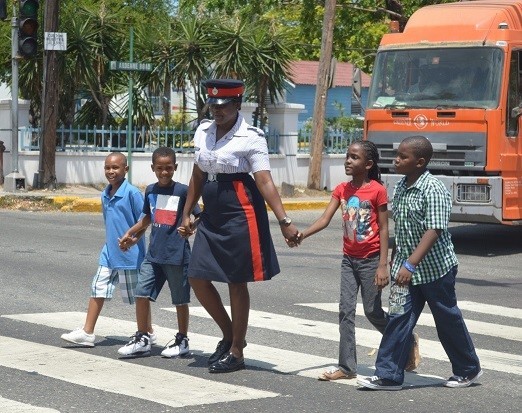Speeches Shim

Crime and violence pose increasing risks to the Caribbean. Murder rates are among the highest in the world, and transnational criminal organizations are threatening regional security. Youth unemployment in the region is also high, averaging between 20 to 40 percent. In an effort to tackle this challenge in 2010 President Obama launched the Caribbean Basin Security Initiative (CBSI). This Presidential Initiative is a shared Caribbean-U.S. security partnership that fulfills the U.S. commitment to deepen Caribbean security cooperation, particularly among the Caribbean states.
The CBSI partnership complements existing citizen safety initiatives between the United States and other partners in the hemisphere and will increase citizen safety throughout the Caribbean.
USAID/Jamaica’s CBSI programs address the following areas:
Community Safety and Security: Building upon past successes with Community Based Policing, USAID focuses on the strengthening of Community Based and Civil Society Organizations, the promotion of community-driven activities, the development of long-term champions of a culture of lawfulness, and the enhancement of Ministries, Departments and Agencies of the state to be more community-oriented institutions. In this way USAID contributes to building safer communities, strengthening social cohesion, and improving civic engagement/participation.
Youth-At-Risk Programs: USAID works with holistic, youth-friendly approaches that aim to assist at-risk youth in becoming active citizens through the engagement of different social, educational and behavioral, and recreational activities. This approach includes three main areas regarding youth involved in criminality: prevention, intervention and rehabilitation including di-version activities as alternatives to traditional incarceration for first-time offenders. Youth also develop skills through educational programs, which introduce them to fundamental concepts in business, economics, individual accountability, and entrepreneurship.
Workforce Development: USAID expects that life-skills and technical training will increase opportunities for at-risk youth to work within the legitimate economy, thereby reducing the likelihood of involvement in gang and criminal activity. In Jamaica, relationships with key public sector, private sector, and donor agency partners are being leveraged to create programs to build skills and identify work options for youth. USAID also works in the youth remandee centers, which includes case management/follow up to facilitate at-risk youth acquiring job and education opportunities when they are released.
Anti-Corruption: The ‘Combatting Corruption in Jamaica Project’ has not only built public demand for more effective action against corruption through awareness campaigns, but has al-so provided training to government and civil society partners to build capacity and increase advocacy. The project is expected to have an impact on the nation’s capacity and ability to effectively control instances of and attitudes toward corruption in general, and political corruption in particular.


Comment
Make a general inquiry or suggest an improvement.